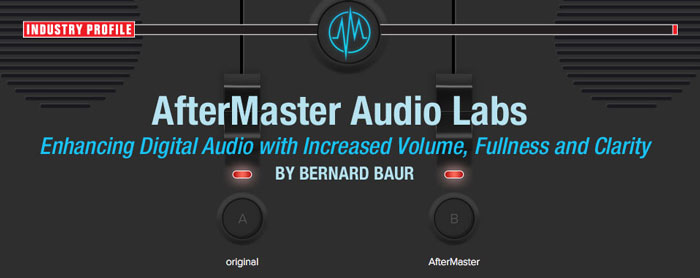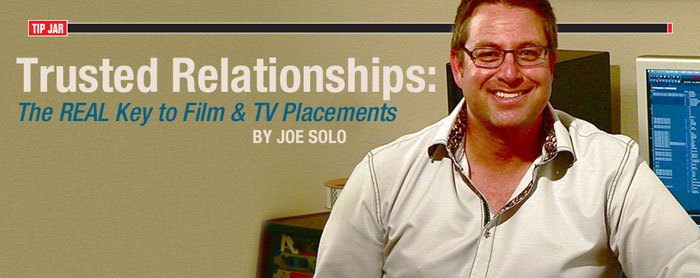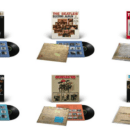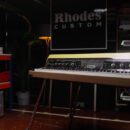
A revolution is on the way, one that will give millennials something most have never experienced—sonic quality. Indeed, for a generation that seems content to listen to music on a device they can hold in their hands, enhanced sound could be a real ear opener. Such an idea is almost subversive since sound quality, especially in mobile devices, is undeveloped and trumped by convenience. But, that may change if AfterMaster Audio Labs’ grand plan is successful.
Formed in 2006 by former entertainment/music executive and serial entrepreneur Larry Ryckman and legendary audio engineer Shelly Yakus, AfterMaster’s mission is unambiguous: they want to bring quality back to consumer audio. Accordingly, they teamed with music industry veterans and world-class engineers who have developed countless audio technologies and proprietary products.
Together, they created a new process that enhances digital audio with increased volume, fullness and clarity. In fact, it is unlike any other audio enhancement product commercially available. AfterMaster’s cofounder and CEO Ryckman states, “We found a way to make digital audio louder, clearer, fuller and deeper. In fact, we can make any audio signal better by improving all frequencies and dynamic ranges.”
To do so, Ryckman and company invented a new algorithm. “Digital audio was created by an algorithm that converted analog sounds into digital files,” he explains. “The problem is that the old formula has remained the same for the last 40 years, and no one has stepped up to make digital audio sound better.” Until now, that is.
AfterMaster’s technology provides an impact that is significantly different from Neil Young’s PonoMusic, which has a similar goal but simply utilizes high-resolution files and has garnered mixed reviews, with some saying the sound is not distinguishable enough to matter—it just doesn’t have a big enough kick. Conversely, AfterMaster has been trumpeted by a host of music industry heavyweights who joined the company’s Advisory Board, including producer Rodney Jerkins, songwriter Diane Warren, producer Richard Perry, media investor Ted Field, former Atlantic, Capitol and Virgin Music CEO Jason Flom, producer Jack Douglas, former Interscope CEO of Urban Music Ron Gillyard, former Virgin and Warner Music CEO Phil Quartararo and superstar artist/actor Justin Timberlake, who became a co-owner of the company.
“With this team, I think we have pretty good ears and a sense of how music should sound,” Ryckman states. “In fact, we are the only technology company that comes from the music industry.”
So how does AfterMaster work? It uses a highly sophisticated process that takes the listening standard for digital audio to a new level. It does so by reconfiguring the original algorithm so that sound comes across as more robust. “Digital audio is basically flat,” Ryckman notes. “It is not a refined technology. But we found a way to make it sound clear and loud without altering file size or distorting the original recording.”
To implement its vision, AfterMaster partnered with ON Semiconductor to develop a microchip (containing the new algorithm) that can be inserted into electronic audio products—from cell phones and computers to sound bars and hearing aids. As such, the target market is markedly different from Young’s consumer oriented approach. AfterMaster plans to collaborate with manufacturers. According to Ryckman, “We have already met with several major electronic corporations.”
Additionally, since AfterMaster consists of music industry professionals, they give special attention to musicians and recording artists by offering an online mastering process called ProMaster. It’s an expeditious way for independent artists (as well as TV, video and film production companies) to obtain the polish and quality AfterMaster Audio Labs provides.
Ryckman points out, “There are a lot of independent artists who can’t afford to professionally master their recordings. As a result, almost 90% do not master their music, and that limits their opportunities. We wanted to change that scenario by offering them an option that gives them a polished and radio-ready track in an easy and affordable manner.”
With ProMaster, artists simply upload audio files (WAV or MP3), which are then processed using cloud-based services for a quick turnaround. They can then listen to a 90-second sample. If satisfied, they pay a nominal sum ($25 to $30) for the service.
Since different genres require different techniques and processes, when mixing and mastering, we asked Ryckman how ProMaster accounts for that. His response is enlightening. “We processed millions of songs over many years until we were satisfied with the results. ProMaster recognizes different genres and identifies sounds and instruments in a nanosecond so that the best possible sound can be achieved without changing the intent or style of a song.”
AfterMaster is poised to change the way we listen to digital audio, music in particular. But the big question is whether enough people will care about it. Ryckman contends, “The answer is ‘Yes!’ I think they’ll care once they hear the difference and notice what they were missing. I believe our innovation offers a big enough change so that it will matter to anyone with ears.”
For more information, visit aftermasterhd.com and promasterhd.com.
By Bernard Baur









